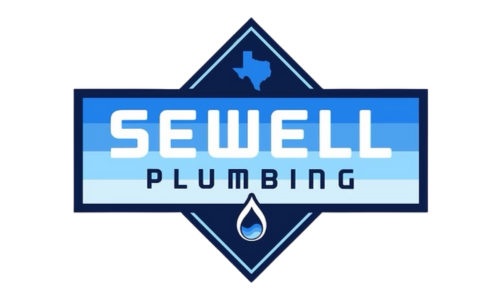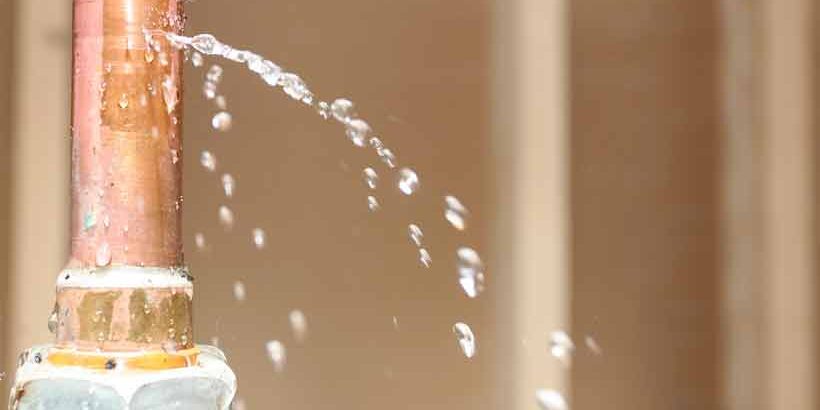Dealing with hot water pipe leaks can be a daunting task for any homeowner. Not only are these leaks a nuisance, but they can also lead to significant water damage if not addressed promptly. This comprehensive guide will walk you through the steps to identify, assess, and repair hot water pipe leaks, ensuring your home’s plumbing system remains in top condition.
Understanding the Causes of Pipe Leaks
Hot water pipe leaks can arise from various factors, including corrosion, high water pressure, or the natural wear and tear of pipes. Understanding these causes is crucial in preventing future leaks.
Identifying a Hot Water Pipe Leak
Identifying a hot water pipe leak early can save you time and money. Signs include a noticeable drop in water pressure, damp walls or floors, and an unexpected increase in your water bill.
Risks and Consequences of Ignoring Leaks
Neglecting hot water pipe leaks can lead to severe issues like mold growth, structural damage, and increased utility costs. Immediate action is essential once a leak is detected.
Initial Steps Before Repair
Safety Precautions and Preparation
Before attempting any repair, prioritize safety. Ensure the water heater is turned off, and the area around the leak is dry to prevent any risk of electrical hazards.
Shutting Off the Water Supply
Locating and turning off the main water supply is a critical step. This prevents further water flow and allows you to work on the leak safely.
Gathering Necessary Tools and Materials
Prepare all necessary tools and materials, such as pipe wrenches, replacement pipes, or sealants. Having everything at hand makes the repair process smoother.
Assessing the Leak and Damage
Determining the Leak’s Severity
Assess the severity of the leak. A small drip may require a simple fix, while a significant leak might indicate a more serious problem needing expert intervention.
Inspecting for Related Damage
Examine the area around the leak for any water damage to floors, walls, or fixtures. This can help you understand the extent of the problem.
Deciding on DIY Repair or Professional Help
Decide whether the leak is within your capability to fix or if it requires professional plumbing services. Complex leaks often need the expertise of a plumber.
Temporary Fixes for Immediate Relief
Using Pipe Clamps or Epoxy
For a quick fix, pipe clamps or epoxy putty can be applied to the leak. These temporary solutions can hold the leak at bay until a more permanent repair is made.
Applying Rubber Pipe Connectors
Rubber pipe connectors or repair sleeves can also provide a temporary solution. They are easy to install and can effectively seal small leaks in hot water pipes.
Importance of Temporary Solutions
While temporary, these fixes are crucial in preventing immediate water damage and buying time for a more thorough repair process.
Permanent Repair Techniques
Soldering Pipes: A Step-by-Step Guide
For copper pipes, soldering is a common permanent repair method. This process involves cutting the damaged section, fitting a new pipe, and soldering it into place.
Using Pipe Repair Clamps
Pipe repair clamps can offer a more durable solution. These clamps are designed to seal the leak tightly and can be a viable long-term fix for minor hot water pipe leaks.
Replacing Sections of the Pipe
In cases where the damage is extensive, replacing the entire section of the pipe may be necessary. This process involves removing the damaged part and installing new piping.
Dealing with Hard-to-Reach Leaks
Accessing Hidden or Enclosed Pipes
Some hot water pipe leaks may occur in areas that are hard to access, like within walls or under floors. In such cases, careful removal of the obstructing material is required for access.
Special Tools and Techniques
Special plumbing tools, like a pipe cutter or inspection camera, may be needed to reach and repair these difficult leaks effectively.
When to Call a Professional
If the leak is in a particularly challenging location, it might be time to call a professional plumber. They have the expertise and tools to handle complex repairs with minimal damage to surrounding areas.
Preventative Measures to Avoid Future Leaks
Regular Maintenance and Inspection
Regularly inspecting your plumbing system is key to preventing hot water pipe leaks. Look for signs of wear, corrosion, or damage, and address any issues promptly.
Using Quality Piping Materials
Invest in high-quality piping materials that are less prone to corrosion and wear. Though they may cost more upfront, they can save money and hassle in the long run.
Insulating Pipes to Prevent Freezing
Insulating your hot water pipes, especially in colder climates, can prevent freezing and the subsequent bursting of pipes, which is a common cause of leaks.
Understanding Different Pipe Materials
Characteristics of Copper, PEX, and PVC Pipes
Different materials have unique properties: copper is durable but expensive; PEX is flexible and easy to install; PVC is cost-effective but not as resilient as copper.
Repair Methods Tailored to Pipe Types
Each type of pipe may require different repair methods. For example, PEX can often be repaired with push-fit connectors, while copper may need soldering.
Pros and Cons of Different Materials
Weigh the pros and cons of different materials in the context of your home’s needs. Factors like longevity, cost, and ease of repair should influence your choice.
Post-repair checks and Maintenance
Testing for Further Leaks
After any repair, it’s important to test the system for any additional leaks. Turn the water back on and monitor the repaired section closely for signs of leakage.
Long-term Maintenance Tips
Establish a routine for long-term maintenance. This includes periodic checks, cleaning debris around pipes, and monitoring water pressure to ensure the health of your plumbing system.
Monitoring Water Pressure and Quality
Excessive water pressure can strain pipes, leading to leaks. Use a pressure gauge to check your home’s water pressure and ensure it’s within a safe range.
How to repair a hot water pipe leak?
Repairing a hot water pipe leak requires a systematic approach. Here’s a step-by-step guide on how to repair a hot water pipe leak:
1. Turn Off the Water Supply
Locate the main water shut-off valve and turn it off to stop the flow of water to the leaking pipe. This step is crucial to prevent further damage.
2. Drain the Pipes
Open faucets connected to the leaking pipe to drain any remaining water from the system. This reduces pressure and minimizes the mess during repairs.
3. Identify the Leak
Locate the exact location of the leak. Check for visible signs of damage such as wet spots, rust, or corrosion on the pipe.
4. Prepare the Area
Ensure the area around the leak is dry and clean. Remove any insulation or covering to access the damaged section of the pipe.
5. Choose a Repair Method
Depending on the size and severity of the leak, choose an appropriate repair method:
- For small leaks: Epoxy putty or pipe repair tape can be effective temporary solutions.
- For larger leaks: Consider using a pipe clamp or compression coupling for a more secure fix.
- For extensive damage: If the pipe is severely damaged, you may need to replace the section of the pipe.
6. Apply the Repair
Follow the manufacturer’s instructions for the chosen repair method:
- Epoxy putty: Knead the putty, apply it over the leak, and allow it to harden.
- Pipe clamp or compression coupling: Position the clamp or coupling over the leak, and tighten it securely with the appropriate tools.
- Pipe replacement: Cut out the damaged section and replace it with a new section of pipe using appropriate connectors and soldering for copper pipes or fittings for plastic pipes.
7. Test the Repair
- Turn the water supply back on and check for any leaks around the repaired area.
- Monitor the repair for a while to ensure it holds under pressure.
8. Insulate the Pipe
After successful repair, consider insulating the pipe to prevent future freezing, which can lead to more leaks.
9. Monitor and Maintain
Regularly inspect your plumbing system for any signs of new leaks or issues. Address them promptly to prevent further damage.
10. Seek Professional Help
If the leak is extensive, hard to reach, or if you’re unsure about your repair skills, don’t hesitate to call a professional plumber for assistance.
Remember that safety is paramount when dealing with hot water pipe leaks. Always follow safety precautions, and if in doubt, consult a plumbing expert for guidance or assistance.
Frequently Asked Questions (FAQs)
Q1: How do I know if I have a hot water pipe leak?
A1: Signs of a hot water pipe leak include reduced water pressure, unusual water bill spikes, damp spots on walls or floors, and hissing or dripping sounds near pipes.
Q2: Can I repair a hot water pipe leak myself?
A2: It depends on the severity of the leak. Small leaks can often be fixed with DIY solutions, but major leaks may require professional plumbing services.
Q3: What safety precautions should I take before attempting a repair?
A3: Ensure the water heater is turned off, the area around the leak is dry, and wear safety gear like gloves and safety goggles to prevent accidents.
Q4: Are temporary fixes effective for hot water pipe leaks?
A4: Temporary fixes like pipe clamps or epoxy can stop immediate water flow, providing a short-term solution until a more permanent repair can be made.
Q5: What are the steps for soldering pipes to repair a leak?
A5: Soldering involves cutting out the damaged section, fitting a new pipe, and using solder to create a watertight seal. It’s effective for copper pipe repairs.
Q6: How can I prevent future hot water pipe leaks?
A6: Regular maintenance, using quality piping materials, and insulating pipes to prevent freezing are key preventive measures.
Q7: Are all hot water pipe materials the same when it comes to repair methods?
A7: No, repair methods may vary based on the pipe material. Copper, PEX, and PVC pipes may require different techniques for repairs.
Q8: Is it necessary to monitor water pressure and quality after a repair?
A8: Yes, monitoring water pressure helps prevent strain on pipes, and checking for leaks after a repair ensures the fix was successful.
Q9: Can I handle post-repair maintenance myself?
A9: Post-repair maintenance like regular checks and cleaning around pipes can often be done by homeowners. However, professional assistance may be needed for complex issues.
Q10: When should I seek professional help for a hot water pipe leak?
A10: You should seek professional assistance if the leak is extensive, in a hard-to-reach location, or if you’re unsure about your ability to repair it effectively.
Conclusion
In summary, effectively repairing hot water pipe leaks involves a combination of immediate action, proper repair techniques, and preventative measures to ensure long-term results.
Regular maintenance is essential in preventing future leaks. This not only saves costs but also preserves the integrity of your home’s plumbing system.
While many hot water pipe leaks can be addressed through DIY methods, don’t hesitate to seek professional assistance for complex repairs. A skilled plumber can provide a reliable and lasting solution to your plumbing woes.
This comprehensive guide on handling hot water pipe leaks aims to empower homeowners with the knowledge and confidence to tackle this common issue effectively. From identifying leaks to making repairs and taking preventative steps, these insights will help you maintain a robust and leak-free plumbing system.







